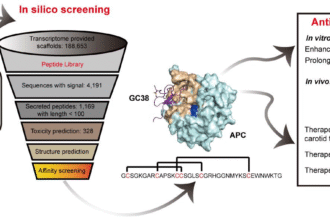Introduction
The postnatal period is defined in accordance with the WHO as beginning immediately after birth and extending through the first 6 weeks (42 days) following childbirth.1 This definition encompasses both the immediate postpartum phase (the first 24 hours after delivery) and the subsequent weeks up to day 42. This period is a critical window for supporting the health and well-being of both mothers and their newborns.2 Globally, maternal and neonatal mortality remain major public health concerns, highlighting the broader context in which postnatal care (PNC) must be understood. The global maternal mortality ratio (MMR) declined only slightly, from 227 deaths per 100 000 live births in 2015 to 223 in 2020, still far from the global target of 70 maternal deaths by 2030.2 Similarly, although the neonatal mortality rate decreased to 17 deaths per 1000 live births in 2022, newborns accounted for 47% of all under-five child deaths.3 While this study does not focus on mortality directly, such figures underscore the importance of strengthening PNC systems to support maternal and infant health during this vulnerable period. In addition, approximately 15–20% of mothers experience significant depressive symptoms,4 and about 10% develop anxiety disorders5 during the postnatal phase, further emphasising the need for responsive and supportive care.
To improve maternal and neonatal well-being and to put an end to avoidable deaths, the WHO recommends PNC for postpartum women and newborns within the first 24 hours after birth at a health facility and following a minimum of 3 postnatal contacts, with one occurring between 48 and 72 hours, one between days 7 and 14, and one at 6 weeks after birth.1 However, PNC service utilisation remains low worldwide. A pooled analysis study across Africa, Southeast Asia, the Eastern Mediterranean, Europe, the Americas and the Western Pacific found that less than half of the mothers received PNC following the delivery of their child.6
In the Maldives, the MMR has improved from 114 per 100 000 live births in 2000 to 57 in 2020. However, it has not yet fully achieved the target of <50 maternal deaths per 100 000 live births by 2018.7 In addition, the exclusive breastfeeding rate at 1 month among mothers in the Maldives was only 26.9%.8 The Ministry of Health has a universal healthcare system in which access to perinatal care is free to all Maldivian citizens, focusing on at least four antenatal care visits, births attended by skilled health personnel, PNC within 24 hours of childbirth and three postnatal check-ups at a health facility on the third day, the first week and the sixth week postpartum.9 Nevertheless, only 21% of Maldivian mothers who gave birth in the hospital received PNC at a health facility.10
The use of PNC is influenced by a number of factors, including maternal age, ethnicity and region, level of education, marital status, ANC utilisation,11 monthly income12 information provided by healthcare provider,3 experience of PNC utilisation13 and transportation problems.14 However, the results from one study in the Maldives are inconsistent with those from other countries, finding that age, education, occupation, type of family, number of children, complications during pregnancy and after birth, place of last childbirth, distance to hospital, the cost of transport and quality of first neonatal care were not significantly associated with PNC utilisation.10
While previous studies offer general insights into the challenges of PNC, they have not delved deeply into the specific, often hidden barriers that postpartum women face in accessing and using PNC services. Thus, the Maldivian women’s experience of using PNC services needs to be explored. This study aims to understand the experiences of using PNC services, as well as the facilitators and barriers to their use among postpartum women in the Maldives. The central research question guiding the study was: ‘what is the experience of receiving PNC?’
Methods
Design
A descriptive phenomenological design guided by Husserl’s philosophy15 16 has been used in this study. The understanding of lived experiences is linked to the ideas of consciousness and intentionality of how meaning is experienced. A descriptive phenomenology is most suitable for allowing the participants to describe their lived experiences of PNC and can make sense, and produce the meaning of PNC as a postnatal mother. As bracketing is fundamental in phenomenological philosophy,6 bracketing for this study was accomplished through reflexive journaling. The researcher wrote memos to explain prior knowledge and experiences of PNC at the start of the research. Furthermore, the reflexive notes were revisited prior to each interview and during data analysis to ensure the interviewer-imposed assumptions did not take precedence over the participants’ described experiences. The study adhered to the Consolidated Criteria for Reporting Qualitative Research, and the corresponding checklist was used to guide reporting.
Setting and participants
Participants in this study were Maldivian women who had delivered at H.Dh Kulhudhuffushi Regional Hospital (KRH), the primary referral centre in the northern region offering comprehensive maternal and neonatal healthcare services. All participants were residents of either Kulhudhuffushi or Nolhivaram islands. A purposive sampling strategy was employed to recruit women who met the following inclusion criteria: aged 20 years or older, had experienced a normal vaginal delivery and were between 6 weeks and 3 months postpartum at the time of the interview. Women with severe obstetric or medical complications requiring active treatment, such as postpartum depression or other conditions that would limit meaningful participation, were excluded; however, no participants met these exclusion criteria.
Recruitment occurred between March and August 2023. During this period, a total of 99 women gave birth at KRH, of whom 37 met the inclusion criteria. 16 participants were ultimately interviewed. This sample size was determined based on the principle of data saturation, with interviews continuing until no new themes or insights emerged.
Data collection
The researcher is the key research instrument for a qualitative study.17 The principal investigator (SH) is a female, Maldivian nursing lecturer with more than 4 years’ experience in caring for postpartum women and with vast experience teaching midwifery for more than two decades. These experiences inspired the researcher to become interested in exploring the experiences of PNC among postpartum women in the Maldives. The researcher enrolled in courses on qualitative research in nursing and qualitative data collection and analysis at the Faculty of Nursing, Chiang Mai University. These gave the researcher the primary conditions to be a reliable research instrument.
Face-to-face semistructured interviews were conducted by SH in a private, safe, relaxing and convenient location (in their homes) based on the participants’ satisfaction, without interference, to protect their confidentiality and privacy, and included only the participant and researcher. Each interview lasted between 60 and 90 min, with audio recordings done to obtain complete and accurate information. Demographic information about each participant was obtained at the start of the interview. Interviews began with a broad open-ended question asking, ‘how do you perceive the care you received after the birth of the baby since staying in the hospital until 6 weeks after birth?’. Prompts from the interview guide were used to encourage participants to elaborate on their experiences. The audio recording was transcribed verbatim by the researcher within 24 hours, and the interviewer’s reflexive notes were discussed among members of the research team. The interviews and original transcripts were originally recorded in ‘Dhivehi’, the local language. All quotations were translated into the English language by the researcher, and the translation accuracy and meaning were assessed by a qualified linguistic expert. None of the participants refused to participate in the study. Each participant was interviewed at least twice. The guiding questions were pilot tested with one mother who met the inclusion criteria.
Data analysis
Data collection and analysis began simultaneously in this research. Thematic analysis, based on Braun and Clarke’s six-step approach, was applied, including: familiarisation with data through repeated reading of transcripts; generating initial codes conducted manually by SH; generating themes through collaborative discussions (SH, NC, NV and AK); revising themes against the data set for coherence and distinctiveness; defining themes to reflect underlying patterns and meanings; and producing the report by linking themes back to the research question.18 This method was chosen for its flexibility and ability to capture complex experiential data. There were ongoing discussions among all research team members (SH, NC, NV and AK) about the analysis of the data, and the research team reached agreement on the final findings presented in this paper. No software was used in the analysis.
Trustworthiness
To enhance the trustworthiness of this study, we followed Lincoln and Guba’s scientific rigour criteria: credibility, transferability, dependability and confirmability.19 To ensure credibility, adequate time was spent with each participant to develop a trusting relationship with them. In addition, the member-checking technique was used. To support transferability, detailed descriptions of the demographic characteristics of the participants and the research settings were provided. Dependability was ensured by a clear audit trail demonstrating how analytic decisions were made. Peer debriefing was conducted on completion of the data analysis process. Two qualitative experts were invited to engage in the discussion. Confirmability was established by including direct quotations from the data gathered from the participants. The qualitative expert advisory team checked if the data were logical and looked carefully at the accuracy of meanings and interpretations based on the research findings, which showed no incidence of inquirer bias.
Patient and public involvement
Patients or the public were involved in the design, conduct, reporting or dissemination plans of our research.
Discussion
This study revealed a central theme in the lived experiences of PNC of postpartum women in the Maldives: a marked mismatch between their expectations of PNC and the reality of the care they received. For most participants, expectations were not formed in isolation; they were shaped by prior childbirth experiences, antenatal visits, cultural understandings and the information they had gathered from both healthcare providers and their social networks. Yet, across almost all accounts, women described feeling that their expectations had not been met, resulting in an emotional and practical dissonance that coloured their entire postpartum experience.
The expectations were clear. Women anticipated that healthcare providers, especially nurses and midwives, would offer clear, detailed information about caring for their newborns, demonstrate proper breastfeeding techniques and assess physical recovery, particularly when episiotomies or perineal pain were involved. Instead, many received only general advice or instructions without physical examination and were discharged within 24 hours of delivery. They left the hospital with questions unanswered, unsure whether they were healing properly or breastfeeding correctly. This mismatch led not only to confusion but also to feelings of neglect and emotional frustration.
These findings echo similar studies from the UK, where mothers reported unmet expectations around support for breastfeeding and postpartum recovery.20 Yet the Maldivian context adds further layers to this experience. Cultural expectations about warmth, attentiveness and personalised care amplified the disappointment when the reality felt transactional. Women in this study did not only want clinical care; they wanted to be reassured, to be touched gently, and to be told that they and their babies were doing well. When care felt impersonal or rushed, they interpreted it, not simply as inadequate service, but as a lack of caring.
Indeed, the emotional toll of this mismatch was a striking thread running through all narratives. Participants described feeling overwhelmed, emotionally unsupported and, at times, invisible. These negative emotions were not abstract; they had tangible effects on how mothers viewed the healthcare system, and in some cases, discouraged them from returning for future follow-up care. This aligns with broader research from countries such as Ethiopia and Brazil, which has documented how mistreatment or lack of empathy during the perinatal period can reduce trust in health systems and delay postpartum help-seeking.21 22
Importantly, while women criticised certain aspects of care, they also pointed to enablers that supported their engagement with the health system. One of the most significant was family support. Participants consistently described how their husbands, mothers and mothers-in-law played vital roles in helping them access PNC by providing transportation, caring for older children or simply offering emotional encouragement. In Maldivian society, where family units often include extended relatives and where childbirth is seen as a communal life event, this support was not only practical but deeply valued. Studies from other countries, such as Malawi and India, have highlighted the absence of such support, especially partner involvement, as a major barrier to care.4 23 The contrast underscores how cultural and familial structures can either reinforce or undermine women’s access to care.
Positive emotions also emerged, but they were primarily tied to isolated moments such as encounters with friendly nurse-midwives during follow-up visits, or satisfaction with new maternal health centres that offered shorter waiting times and a more welcoming environment. When such experiences occurred, women described feeling ‘happy’ and ‘at ease’, emphasising how even small gestures of friendliness or efficient service can restore confidence. These positive interactions, however, seemed to depend more on the personality of individual providers than on a consistent system of respectful, woman-centred care.
Yet, even with strong family support and occasional positive provider interactions, barriers remained. Some women did not attend all recommended follow-up appointments, not because they lacked knowledge, but because they perceived themselves as healthy and saw no reason to return. This finding mirrors research from Indonesia and India, which has shown that perceived health, rather than actual health status, often dictates whether women seek PNC.24 25 For these Maldivian women, the absence of symptoms was interpreted as an absence of need, reinforcing the importance of better antenatal and postnatal education to explain the purpose of follow-up even in the absence of complications.
Cultural factors also played a role. Women described the postpartum period as a highly private time marked by physical discomfort, leaking breasts and a desire to remain at home and out of public view. Attending a clinic during this period, especially in environments with minimal privacy, was seen as not just inconvenient but emotionally uncomfortable. This sense of compromised dignity is not often reported in global studies on PNC, suggesting a unique cultural lens through which postpartum experiences are viewed in the Maldivian context.
Interestingly, while women were critical of certain aspects of care, they did not suggest disengaging from the system. Rather, they expressed a strong desire for the system to evolve, particularly through the introduction of postnatal home visits. For mothers recovering from episiotomies or dealing with other medical issues, the idea of being visited by a nurse at home was seen as both practical and comforting. Home visits are recommended by the WHO as part of essential postpartum care,1 and studies from China and Jordan have shown how such services improve maternal satisfaction and reduce barriers to care.26 27 The absence of such a service in the Maldivian context was felt deeply by participants, particularly first-time mothers.
The mismatch between expectations and experiences in this study was not just about what services were offered, but how they were delivered. Women wanted confirmation that they were doing things right, not just information. They wanted connection, not checklists. This aligns with a growing global body of literature that points to the need for relational care that sees, hears and supports women as individuals rather than cases. While geographical and socioeconomic factors do influence access and utilisation—as studies from Sierra Leone, India and Malawi have demonstrated—this study suggests that emotional and interpersonal factors are equally, if not more, important in shaping maternal experiences and outcomes.28–30
This study provides valuable insights into the lived experiences of PNC among Maldivian women, contributing to the limited body of research on maternal health in small island and low-resource settings. Through purposive sampling and in-depth interviews with 16 postpartum women, thematic saturation was achieved, enabling a rich, context-specific understanding of women’s needs, and of the perceptions and enablers of care during the postnatal period. Several limitations should be acknowledged. First, all participants were recruited from a single regional hospital and represented a relatively educated group, which may not fully capture the diversity of experiences across different islands or among women with lower levels of education or healthcare access. The study also included only women who returned for follow-up visits, potentially excluding those who face the most significant barriers to accessing care. As such, the findings may not be fully representative of the broader postnatal population. Future research should consider targeted approaches to recruit women who do not attend follow-up care, in order to explore systemic and social barriers to access.
Second, while demographic data were collected to provide context, the analysis focused on thematic patterns across the sample rather than subgroup differences. Further studies may benefit from examining how factors such as age, parity, occupation or income influence women’s experiences of PNC. Third, data collection occurred during the COVID-19 pandemic, a period marked by disruptions in health services and heightened anxiety, which may have influenced both the type of care received and participants’ perceptions. This context should be considered when interpreting the results. Fourth, the study relied solely on in-depth interviews with mothers, limiting the range of perspectives and methods. Including healthcare providers or incorporating observational data could have strengthened the analysis through triangulation and offered a broader view of the care environment. Fifth, although maternal mental health issues such as depression and anxiety are known to affect postnatal experiences, this study did not include formal screening for these conditions. As such, we may have overlooked important psychological factors shaping women’s narratives. Future research should consider integrating validated tools to assess maternal mental well-being in relation to care experiences.
Despite these limitations, the study’s strength lies in its detailed qualitative exploration of PNC within a specific cultural and healthcare setting. The findings offer practical implications for improving service delivery, including the potential benefits of home visits by community health workers, SMS-based follow-up support and enhanced communication between mothers and providers. Finally, this research highlights the value of context-sensitive qualitative inquiry and may serve as a model for similar investigations in other settings. By centring women’s voices, the study contributes to efforts to strengthen PNC in ways that are culturally appropriate, responsive and equitable.







